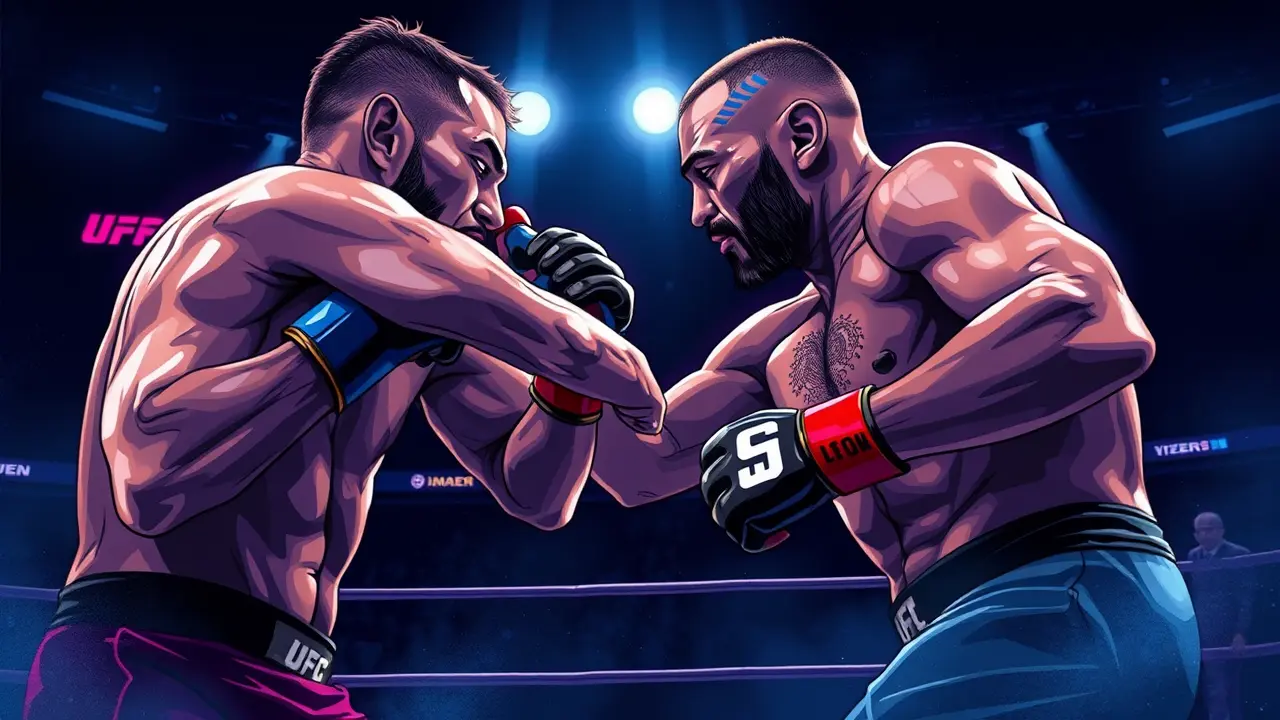Anatoly Malykhin Surprised by Fan Reaction to Ankalaev's Defeat
The sting of a high-profile defeat in the unforgiving world of mixed martial arts is a familiar sensation, a bitter cocktail of physical pain and dashed aspirations that every fighter must learn to swallow. Yet for Anatoly Malykhin, the double champion of One FC, a far more unsettling and profound ache emerged from Magomed Ankalaev's first-round technical knockout loss to Alex Pereira at UFC 320—a deep-seated disappointment not in the performance inside the octagon, but in the reaction from the stands and, more pointedly, from the digital coliseum of online commentary.Malykhin confessed to being genuinely taken aback, not by Pereira’s devastating striking, which has become the stuff of legend, but by the sheer volume of his own countrymen who seemed to revel in Ankalaev's misfortune. 'I was surprised by how many of our compatriots were happy about [Ankalaev's defeat],' Malykhin reflected, his words carrying the weight of a man grappling with a shifting cultural landscape.'I've been reading the comments lately, and it really surprises me why people have started to take such joy in the small failures of others. It seems like there used to be a sense of solidarity, where we supported one another.That is what surprised me the most. ' This observation from a warrior of Malykhin’s caliber transcends the typical post-fight analysis; it is a poignant commentary on the erosion of collective spirit, a theme that finds a powerful parallel in the very essence of athletic endeavor.The world of combat sports, much like a marathon, is often portrayed as the ultimate individual pursuit, a solitary test of will against a single opponent or the relentless voice of fatigue. However, this is a superficial reading.Behind every fighter stepping into the spotlight is a tapestry of support—a team of coaches yelling corrections from the corner, sparring partners who have absorbed countless blows in preparation, a family that has sacrificed time and comfort, and a nation that invests its pride in their representative. When Ankalaev walked out to face Pereira, he was not just a man; he was a symbol, carrying the hopes of a community on his shoulders.His defeat, therefore, was not merely his own but a shared setback. To see that shared connection fray, to witness a segment of the populace derive satisfaction from the stumble of a fellow countryman, signals a troubling departure from the tribal unity that has long been a cornerstone of sporting culture.This phenomenon isn't entirely new, of course. The age of social media has amplified the voices of schadenfreude, turning every public figure’s misstep into a global spectacle for mockery.But Malykhin’s surprise underscores a deeper, more intimate betrayal—one that occurs within the perceived safety of a national or cultural tribe. It brings to mind the wisdom of the great basketball coach Phil Jackson, who often spoke of the power of the team over the individual, or the countless stories of Olympic athletes who, despite fierce rivalry, share a bond forged in the unique fires of international competition.The reaction Malykhin laments is the antithesis of this ethos; it is the equivalent of a runner in a relay race feeling joy when a teammate on a rival team drops the baton, rather than focusing on their own lane and the collective goal. Examining the context of the fight itself, Pereira’s victory was a masterclass in predatory precision, a reminder that in the light heavyweight division, a single shot from a striker of his caliber can rewrite narratives in an instant.Ankalaev, a formidable and technically brilliant grappler with a formidable record, entered the bout as a significant threat, a man many believed had the tools to dismantle the Brazilian’s stand-up game. The fight’s abrupt ending—a technical knockout in the first round—was a stark lesson in the volatility of the sport.It was a moment that should have elicited empathy for the grueling nature of the profession, a recognition of the courage it takes to compete at that level. Instead, a disheartening segment of the audience chose to focus on the failure itself, treating it as a source of entertainment or, worse, validation for their own pre-existing biases.The path forward for Ankalaev is now one of the most compelling stories in the UFC. Does he retreat, rebuild, and return with a renewed strategy, much like a marathoner who hits the wall but learns to pace themselves better in the next race? Or does the psychological blow from the loss, compounded by the unexpected reaction from some of his own, create a deeper scar? History is filled with athletes who have used public doubt as fuel—Michael Jordan famously catalogued every slight, real or imagined, to stoke his competitive fire.But the dynamic Malykhin highlights is different; it’s not the doubt of an opponent or a neutral critic, but the perceived abandonment from one’s own. This cuts deeper and requires a different kind of resilience, one that must be drawn from within and from a tight-knit circle of trust, rather than from the fickle energy of the crowd.For Malykhin, a man who has stood atop the mountain in two weight classes, his comments reveal a leader’s perspective. He is looking beyond the win-loss columns and championship belts, concerned with the soul of the sport and the community that sustains it.His surprise is a call for introspection, a plea to remember that the true strength of any team, any nation, any community of fans, is not measured in its victories alone, but in how it lifts up its members in defeat. The greatest champions are not just those who know how to win, but those who understand that the journey is shared, and that every athlete, in moments of triumph and despair, is a reflection of our collective human spirit, forever striving, sometimes falling, but always deserving of support on the long road back.
It’s quiet here...Start the conversation by leaving the first comment.
© 2025 Outpoll Service LTD. All rights reserved.
